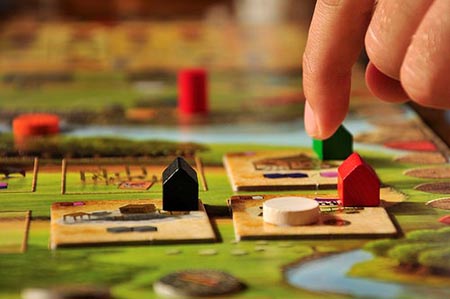
|
| « Articles | History of Playing Cards | Gallery of Playing Cards | Card Games Rules | CONTACT |
Card and Board Games Boost Critical Thinking Skills
When we play games, there are only a few cases where we consider their effects. The most common of these, at least in our personal experience, comes down to the financial implications of making the right decisions, and of winning. In reality, though, both card and board games do far more for us than just bringing some fun into our lives. Their contributions can also come in the form of direct mental engagement, stimulation, and growth.
The most common way in which many of us would have noticed this development comes from card games. Whether poker, blackjack, rummy or anything in between, a huge proportion of success in card games comes from being able to quickly run statistical analysis within our heads. This applies not only for choosing which move is the one we should make for any given hand, but it also works in our consideration of what we should do next, to better our chances down the line.

"Group of balinese men playing cards sitt" (Public Domain) by Artem Bali
Of the core components of critical thinking, analyzing, decision making, reasoning, evaluating, and problem-solving, are all heavily engaged when we play games. It is through this engagement and continued repetition that we help strengthen the mental pathways which improve these capacities, and better our future chances.
To use Texas hold'em as an example, we need to look at what goes into each round:
- We evaluate our current hand
- We analyze where the upper limits of this hand are based on the community cards
- We reason what the likeliness of other player hands are given the current and previous cards
- We use all this information to solve the problem of our potential chances
- We decide on whether to continue or raise the stakes
While board games play out differently, they also benefit highly from similar uses of critical thinking skills. We still need to plan ahead, get in the minds of our opponents and work to improve our chances for long-term success. In fact, some organizations like the CIA have even developed their own board games to best illustrate these skills in action and help encourage the growth of those which prove the most important. In the case of CIA's Kingpin: The Search for El Chapo or Collect It All, the goal is to not only allow players to have fun but also to serve as a valuable learning tool for helping guide us to greater success in our critical capacities, whether we realize it or not.

"Not sure about the rules" (CC BY 2.0) by Nawarona
This raises the question of exactly how far we might go in incorporating some card and board games into our lives and the lives of the young as valuable teaching tools. Entertainment teaching tools, now called edutainment, have been around for centuries after all, and our modern development into a more digital society has only lowered these barriers to entry.
Whatever the case, if you have ever wondered why you performed better at work after a few long play sessions then know, the answer might be closer than you think.
|
|
|
|